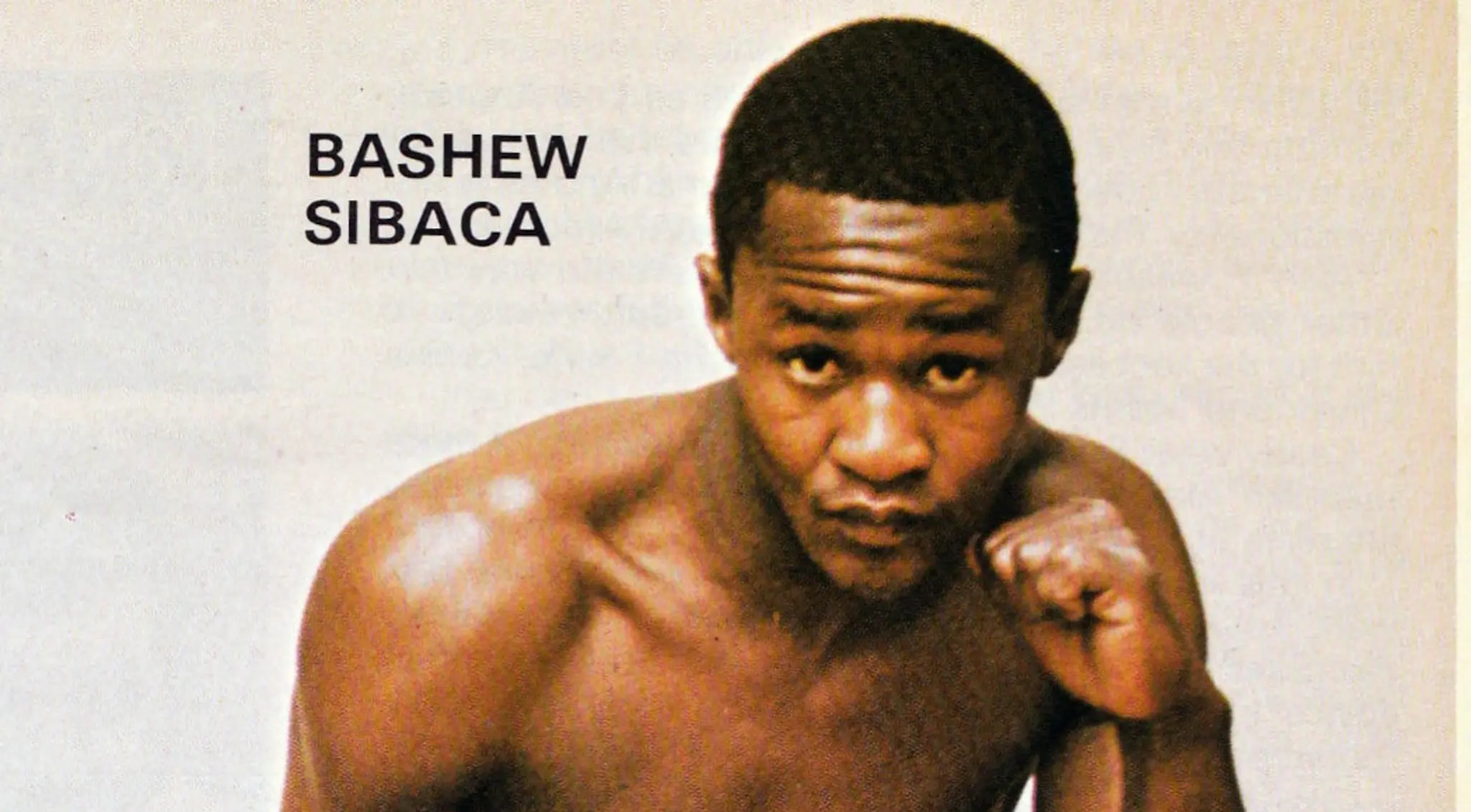Advertisement
Bashew Sibaca never gave up

Bashew Sibaca had a rather in-and-out start to his professional career, after a successful amateur career, having won the South African championships at flyweight, bantamweight, and featherweight, and three titles as a professional.
Mthuthuzeli Sibaca, a Xhosa, was born in the township of Langa in Cape Town on 30 March 1949 and was a keen football player as a youngster. It was only after he got into an argument with another player, who had boxed a bit and beat him, that he joined a boxing club.
“Battling Joe”, who was a popular local fighter, spoke to him after the fight and encouraged him to come to the gym and learn how to box.
He made his professional debut at the Langa Stadium on 10 October 1968, with a second-round stoppage win over Jake Majola.
On 13 March 1969, he outpointed Stanley Jacobs over ten rounds to claim the vacant Cape bantamweight title.
Known as “Blue Angel” he remained unbeaten until he met up with Anthony Sithole on 27 June 1970, at the Orlando Stadium near Johannesburg in a challenge for the non-white South African bantamweight title, but was stopped in the fourth round.
On 28 July 1973, at the Centenary Hall in New Brighton, Port Elizabeth, he once again challenged for the South African non-white bantamweight title but lost on points to Joseph Gumede.
He then decided to travel to England and, after winning against Mario Stango and losing to Vernon Sollas, he went in against Dave Needham on 7 March 1974.
Near the end of the second round, after a clash of heads, he was disqualified and an amount of R400 was withheld from his purse by the British Boxing Board.
Fighting out of his division he lost on points to John Kellie and also lost to Sollas in a return match on a stoppage, when he had to retire with a dislocated shoulder at the end of the sixth round.
Returning to South Africa he won another two fights and once again challenged for the non-white South African bantamweight title on 12 December 1974, but was outpointed by Chris Dlamini.
Moving up to featherweight on 9 October 1976, he lost to Tsietsie Maretloane on points in a challenge for the South African non-white title.
On 22 February 1978, he eventually won a South African title when he beat Thomas Sithebe for the vacant non-white South African featherweight title, only to lose it two months later to Victor Mpiyakhe.
Mixed fights between black and white South Africans at all levels of competition was only permitted from October 1976. However, despite this decision by the South African Boxing Board of Control, which had the backing of the then minister of sport, Dr Piet Koornhof, there were still black and white champions in addition to the all-South African champion or supreme champion.
The only exciting thing about the change in regulations was that for the first time in South Africa there would be a true undisputed champion in all divisions. All "supreme champions" automatically became national champions with the abolition of race distinction in boxing, in January 1979.
In October 1978 he regained the featherweight title when he stopped Tsietsie Maretloane in the 11th round. Maretloane had become the supreme champion when he had beaten the white champion Freddie Rust.
Sibaca then made five successful defences of the all-South African title before challenging Eusebio Pedroza for the WBA featherweight title at the Gimnasio Nuevo Panama in Panama City on 5 December 1981.
Thanks to his long-time manager Sydney Beck, after two years of negotiating and waiting, he was made mandatory challenger and was given a chance to meet Panama’s long time champion Pedroza.
However, Sibaca was not in the same league as the champion and, after a confident start through the first four rounds, the capacity crowd of 18 000 saw the bigger and stronger Pedroza explode with a flurry of blows to the head at the start of the fifth round.
A right and left combination knocked him down and, although he tried to get up, referee Ernesto Magana counted him out as he staggered up on shaky legs.
Pedroza was making the 13th defence of his title and the referee and two judges had him two points ahead at the time of the stoppage.
After this setback Sibaca made a successful defence of the South African title against Gaybon Yekiso on 8 February 1982, but then a little more than seven months later he lost the title to Thomas Sithebe.
In 1983 the spark was gone as he beat Norman Bromfield on points over eight rounds but then lost to future WBA and IBF champion Brian Mitchell, and Thomas Sithebe; and in his last fight on 3 August 1983, at the Good Hope Centre in Cape Town he was beaten on points by Gerald Isaacs.
Sibaca fought a number of South African champions, among whom were Gideon Toughie Borias, Anthony Sithole, Chris Dlamini, Johannes Sithebe, Joe Gumede, Mzukisi Skweyiya, Tsietsie Maretloane, Thomas Sithebe, Freddie Rust, Victor Mpiyakhe, Nkosana Moss, Gaybon Yekiso Norman Bromfield, Gerald Isaacs, and Brian Mitchell.
This must be some sort of record as he finished with a pro record of 50-21-2; 13.
There was some confusion over his record and some reports said he had 100 professional fights but this was never confirmed and possibly it was just for publicity.
Certain sources have reported his record as 77-21-2; 26, whereas Boxrec and South African record keeper Andre de Vries have his record as 50-21-2; 13. The Ring Record Book and Boxing Encyclopedia have listed 94 fights.
In 1980 he was awarded the Old Buck Belt and in 1991 was presented with a Meritorious Award by King Korn/Boxing World for his services to boxing.
After boxing he became a preacher.
Advertisement